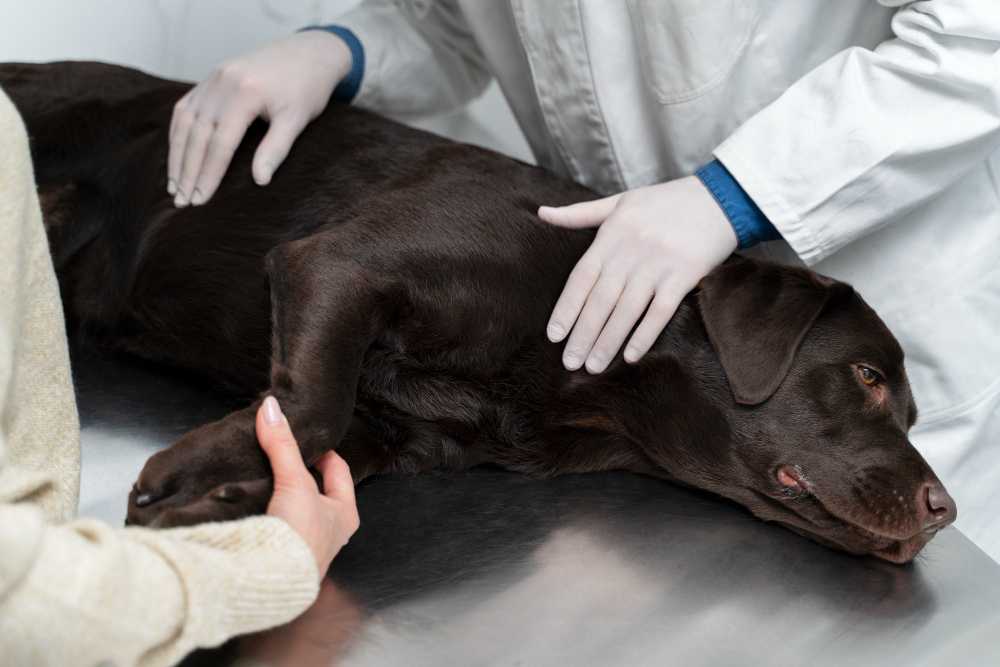How to Know When It’s Time for Euthanasia

How to Know When It’s Time for Euthanasia

Making the decision to say goodbye to a beloved pet is never easy. For many pet owners, their furry companions are more than just animals; they’re family. But as pets age or battle significant health challenges, it becomes important to assess their quality of life and consider whether euthanasia may be the kindest choice.
This guide will help you understand the factors to consider, the indications that euthanasia might be the right step, and how in-home euthanasia services in Reno, NV, can provide a peaceful and dignified farewell for your pet.
What is Pet Euthanasia?
Pet euthanasia is a humane medical procedure that gently ends a pet’s suffering. A veterinarian administers medication to ensure your pet’s passing is peaceful and pain-free. While it’s a heartbreaking decision, euthanasia is often the most compassionate option when a pet’s quality of life becomes severely diminished.
One increasingly popular option is in-home euthanasia. This service allows pets to pass away in the comfort of their familiar surroundings, surrounded by their loved ones.
When Should You Start Considering Euthanasia?
Recognizing the right time to say goodbye is a deeply personal and emotional process. However, there are a few key factors to assess when considering euthanasia, particularly if your pet is aging or dealing with chronic illness.
1. Assessing Quality of Life
Veterinarians often recommend evaluating your pet’s "quality of life" to determine whether euthanasia should be considered. Some common aspects to assess include:
- Pain: Does your pet appear to be in pain, even with proper medication? Are they struggling to move, breathe, or find comfort?
- Hunger and Hydration: Is your pet able to eat and drink without assistance? Loss of appetite or difficulty swallowing could be signs of severe discomfort.
- Mobility: Can your pet move around independently, or are they consistently unable to stand, walk, or change positions?
- Hygiene: Is your pet consistently soiling themselves because they can no longer go to the bathroom properly? This can lead to infections and discomfort.
- Social Interactions: Does your pet still seek affection and enjoy being around you, or have they become withdrawn or anxious?
If these basic aspects of life are no longer being met, your pet's quality of life may be significantly impaired.
2. Chronic Illness and Terminal Diagnoses
Pets with conditions like cancer, kidney failure, heart disease, or advanced arthritis may eventually stop responding to treatments. If your pet's illness has reached a terminal stage, and there’s little chance of recovery or improvement, euthanasia may be a kind option.
Work with your veterinarian to understand your pet’s prognosis and whether continued treatment is beneficial or causing more harm than good.
3. The HHHHMM Scale
Veterinarians sometimes use the HHHHMM scale, a simple tool to measure a pet’s happiness and well-being. The scale evaluates six criteria:
- Hurt
- Hunger
- Hydration
- Hygiene
- Happiness
- Mobility
Assign a score (1-10) for each category. If your pet scores low in multiple areas, it’s a sign their quality of life may be significantly diminished.
4. Your Personal Observations
No one knows your pet better than you do. Trust your intuition and observations. Are they still wagging their tail, purring, or showing interest in life around them? Or do they seem withdrawn, tired, or distressed?
The Emotional Journey
Deciding to euthanize a pet comes with a heavy emotional burden. It’s natural to feel guilt, sadness, and even doubt. Here are a few ways to process the decision and find support during this difficult time.
1. Seek Professional Guidance
Your veterinarian can be an invaluable resource in helping you make this decision. They can provide insight into your pet’s condition and offer compassionate guidance specific to their needs.
2. Talk to the Family
If you share your pet with others in your household, ensure everyone has a chance to weigh in. While every family member may not agree, open and empathetic conversations can provide clarity. It’s also essential to prepare children for this experience in an age-appropriate way.
3. Connect with Pet Loss Support Groups
You don’t have to go through this alone. Many organizations and online groups offer support for grieving pet owners. Sharing your feelings with others who’ve been in your shoes can make the burden a little lighter.
Why Consider In-Home Euthanasia?
For many pet owners, in-home euthanasia is a more comforting option than bringing their pet to a clinic. Here’s why this option might be right for you and your furry friend.
1. Comfort and Familiarity
Your pet can stay in their favorite spot at home, surrounded by familiar smells and loved ones. This can help reduce stress for both you and your pet.
2. More Personal Farewell
An in-home setting allows for a private and personal experience. You can take your time, share memories, and say goodbye in your own way without feeling rushed.
3. Reduced Stress
Trips to the vet can be stressful, especially for pets who dislike car rides or unfamiliar environments. At-home euthanasia eliminates this added anxiety during their final moments.
4. Compassionate Experience
Veterinarians who specialize in in-home euthanasia are trained to provide a calm, compassionate experience. They’ll talk you through the process and ensure your pet’s passing is peaceful.
What to Expect During the Process
If you’re considering at-home euthanasia in Reno, NV, here’s what the process typically involves:
- Consultation
A veterinarian will discuss your pet’s health, review your concerns, and help you prepare for the procedure.
- Sedation
Your pet will be given a gentle sedative to help them relax and feel no pain.
- The Procedure
A second medication will be administered to peacefully end your pet’s life.
- Post-Procedural Care
You’ll have time to say goodbye. The veterinarian will help with aftercare options, such as cremation or burial, based on your preferences.
Navigating Life After Loss
The loss of a pet is deeply emotional. It’s okay to grieve and to give yourself time to process the loss. Memorializing your pet through photos, keepsakes, or planting a tree in their honor can help bring closure.
Contact Rover Veterinary Care for Support
If you’re considering in-home euthanasia in Reno, NV, Rover Veterinary Care is here to support you every step of the way. Our compassionate team specializes in helping families say goodbye in the most peaceful and dignified way possible.
Contact us today to learn more about our services and how we can help you make this difficult decision easier for you and your pet.
